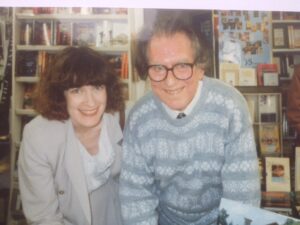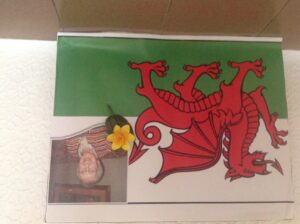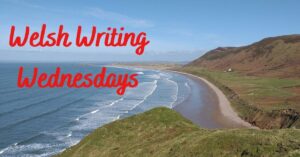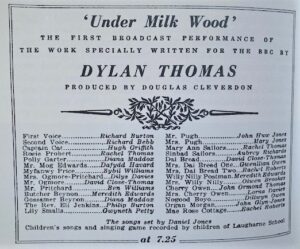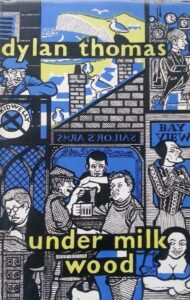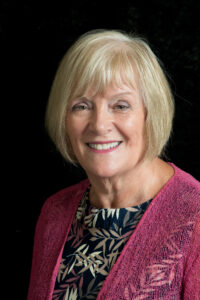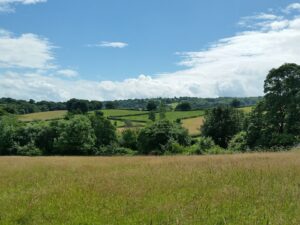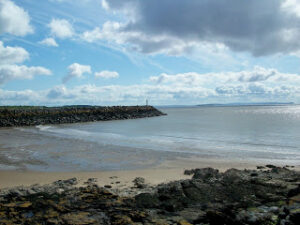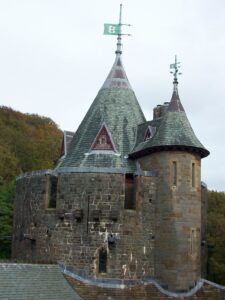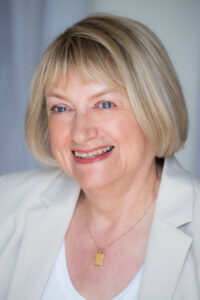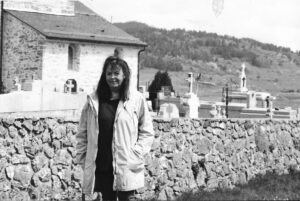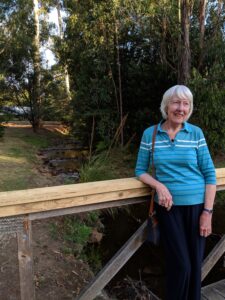 I have a confession to make. When I first signed up to write this article, the subject matter was to be twentieth century Anglo-Welsh poetry, but slowly it dawned on me I could not do justice to those wonderful writers so Tony Curtis, Gillian Clarke, and even my own father, Mercer Simpson, will have to wait. Glyn Jones must take centre stage.
I have a confession to make. When I first signed up to write this article, the subject matter was to be twentieth century Anglo-Welsh poetry, but slowly it dawned on me I could not do justice to those wonderful writers so Tony Curtis, Gillian Clarke, and even my own father, Mercer Simpson, will have to wait. Glyn Jones must take centre stage.
In later life Glyn and his wife Doreen were great friends of my parents. Glyn and my father met through the Welsh Academy (of literature) and found a common bond in their love of words. They lived quite close to each other in Cardiff and on sunny afternoons the Jones could often be found in my parents’ garden, tucking into tea and homemade cakes. Glyn was the ultimate gentle man, always unassuming, with a quiet sparkle about him. The last time I saw him was at a party my parents held to celebrate both my qualification as a chartered accountant and my engagement. A quiet man himself, my husband-to-be adored him too.
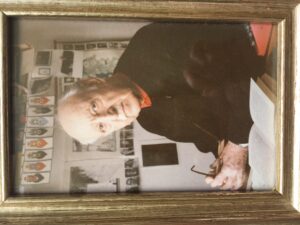 Both in the years before, and after, Glyn’s death, my father became the go-to expert on his work. He was interviewed extensively for a BBC documentary about Glyn’s life made in 1996 and wrote the introduction to the University of Wales Press collected poems published the same year. In that he wrote:
Both in the years before, and after, Glyn’s death, my father became the go-to expert on his work. He was interviewed extensively for a BBC documentary about Glyn’s life made in 1996 and wrote the introduction to the University of Wales Press collected poems published the same year. In that he wrote:
‘Generous in his encouragement of younger writers and in his remarkable gift of friendship, Glyn Jones was so modest about his great gifts that they have still to receive the critical attention they so richly merit.’
Although a friend of Dylan Thomas’, Jones was his polar opposite, a chapel-goer all his life, a man steadfast in his beliefs (he lost his teaching job after becoming a conscientious objector in World War Two), he was indeed too modest to push himself forward. While Jones never created a masterpiece like Under Milk Wood – few people do – he was still a master of his craft as a writer, and his epic poem-play, Seven Keys to Shaderdom, which was unfinished at his death, certainly comes close:
‘Before a dazzling evening’s lemon glow all your repose,
Your writhings, were there alone in open pasture. Bareness
Assumed, in spring’s hysteria, against the soaking snow of
Clouds, green fabrics of your opening foliage, glittering
Sunlit deluges of grain-like silver’
His novels were published in the 1950s and 60s to critical acclaim. The Island of Apples is one of my all-time favourites, a coming of age story told from the viewpoint of a pre-adolescent boy, with descriptions so vivid and perfect it makes you want to stop and read them again and again. I remember becoming so completely lost in the time and place I can picture it to this day.
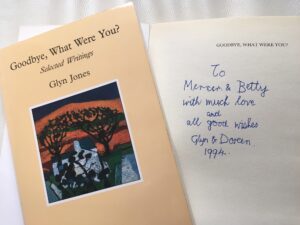 Glyn Jones also wrote short stories and translated poems, plays and other literary works from welsh to english, bringing them to a wider audience. But it is his poetry for which he is most remembered. Or perhaps what I most remember him for. The morning my mother died I took his Collected Poems from the shelf and read to her. Her favourite was The Meaning of Fuchsias, but in the end I decided to read Goodbye, What Were You? at her funeral:
Glyn Jones also wrote short stories and translated poems, plays and other literary works from welsh to english, bringing them to a wider audience. But it is his poetry for which he is most remembered. Or perhaps what I most remember him for. The morning my mother died I took his Collected Poems from the shelf and read to her. Her favourite was The Meaning of Fuchsias, but in the end I decided to read Goodbye, What Were You? at her funeral:
‘At the voice of the mother on a warm hearth,
Dark and firelit, where the hobbed kettle crinkled
In the creak and shudder of the rained-on window,
This world had its beginning
And was here redeemed.’
My ultimate tribute to Glyn is taking his name in my pseudonym, Eva Glyn. I just hope I can live up to his example.

